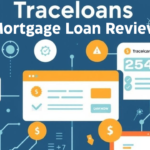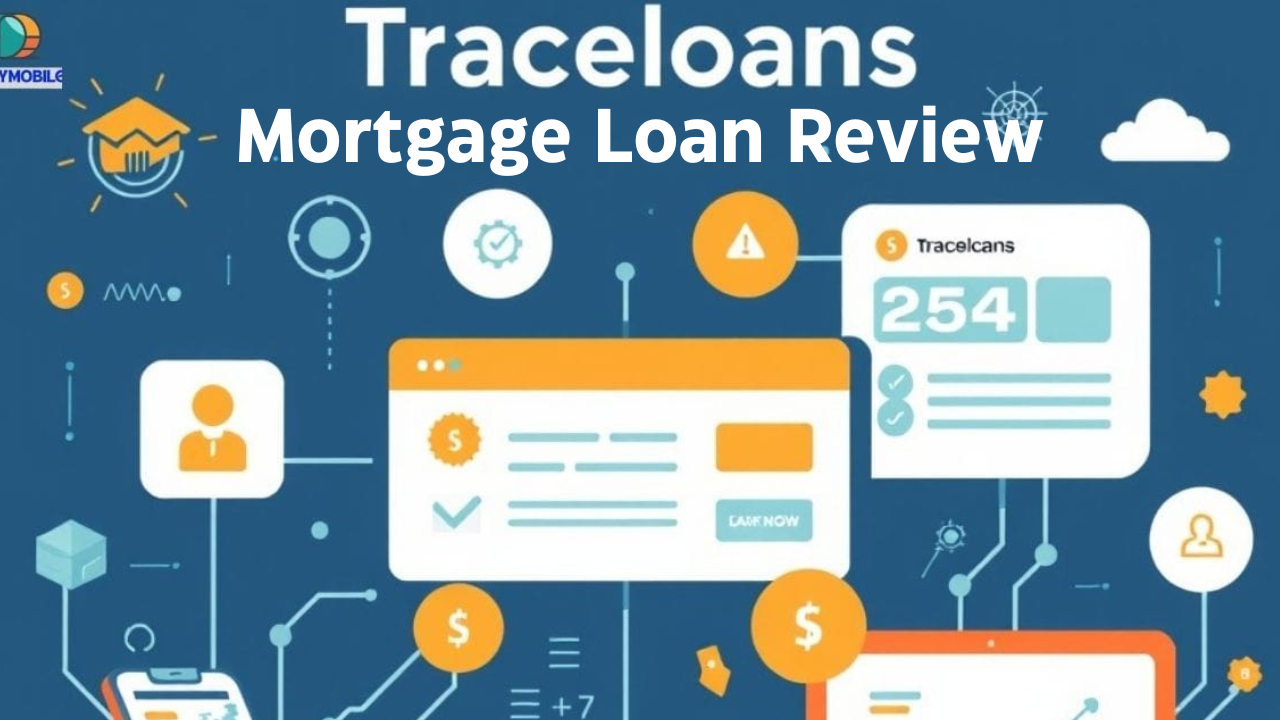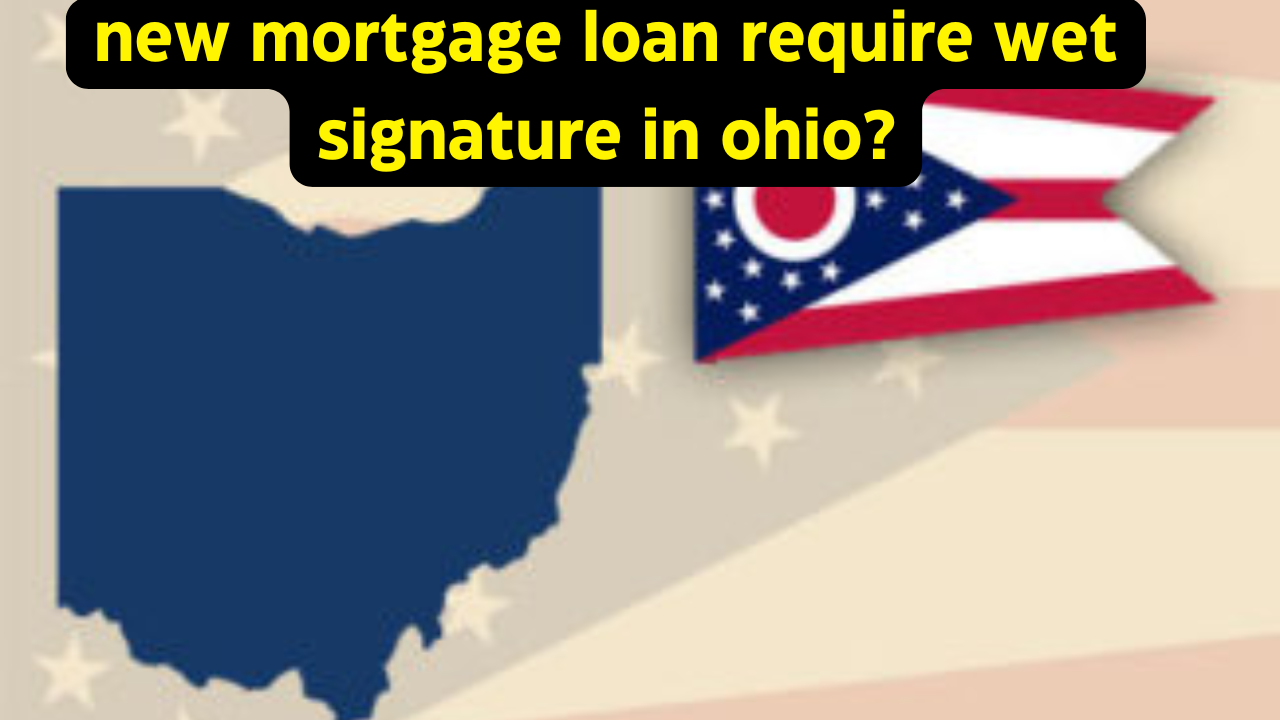Starting your journey to become a licensed mortgage loan originator (MLO) might seem tough. But, with the right help, it can lead to a fulfilling career. The mortgage industry is full of chances for those who want to be loan officers. Knowing how to get your license is key to doing well in this field.
This guide will show you the main steps to get your mortgage loan originator license. We’ll focus on what you need to know for Arizona.
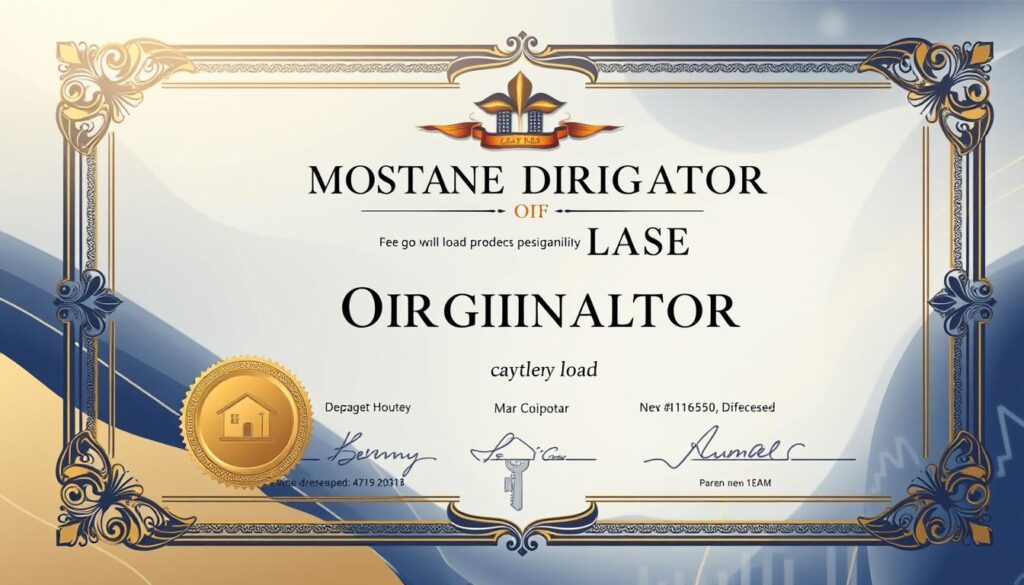
Key Takeaways
- The average estimated total pay for a mortgage loan officer in the United States is $132,078 in 2024.
- The demand for mortgage loan officers is expected to remain steady due to factors like population growth and housing demand.
- Top performers can earn significant bonuses for closing high-value loans or meeting sales targets.
- Remote work opportunities are increasing, providing more flexibility and the chance to work in different markets.
- The licensing process includes NMLS registration, pre-licensing education, and passing the SAFE MLO national test.
Understanding NMLS Requirements and Initial Steps
Starting your career as a mortgage loan originator (MLO) means first getting an NMLS account and ID number. This is the first step towards getting your license.
Creating Your NMLS Account and ID
The NMLS website makes it easy to create your account and get your ID number. This ID is key for your licensing journey, so keep it safe.
Pre-licensing Education Requirements
Arizona requires 20 hours of pre-licensing education. This includes 16 hours of NMLS-approved content and 4 hours on Arizona laws. The SAFE Act also demands 20 hours of education nationwide.
These courses teach you about fair lending, ethics, and more. They’re crucial for passing the National SAFE Mortgage Loan Originator Test. Remember, your education is good for three years before you need to renew it.
State-Specific Requirements for Arizona
Arizona also has its own rules for MLOs. You must pass the National SAFE Mortgage Loan Originator Test with a 75% score. You’ll also need to pass a criminal background check and get sponsorship from a company.
By following these steps, you’re on the path to getting your mortgage loan originator license in Arizona. This will help you start a successful career in the industry.
Obtaining Your Mortgage Loan Originator License
To become a Mortgage Loan Originator (MLO) in Arizona, you must pass the SAFE MLO national test. This test has 120 questions and lasts 190 minutes. You need a score of 75% or higher to pass. The first-time pass rate is only 55%, so make sure to study well.
After passing the test, you need to apply for your Arizona MLO license on the NMLS website. You’ll have to do background checks, submit fingerprints, and give a credit report. Getting your license can cost between $400 and $500.
The Arizona Department of Financial Institutions (DFI) manages the MLO licensing. You must pass both the National and Arizona State tests or the National Test with Uniform State Content. This ensures you meet Arizona’s mortgage origination requirements.
To finish the licensing, you must link your NMLS account to an employer for sponsorship. This sponsorship is key to getting your MLO license and starting your mortgage career.
| Key Licensing Requirements | Details |
|---|---|
| SAFE MLO National Test | 120 questions, 190 minutes, 75% passing score, 55% first-time pass rate |
| Licensing Application | Completed through NMLS website, includes background checks, fingerprints, and credit report |
| Licensing Fees | $400 to $500 total |
| Licensing Oversight | Arizona Department of Financial Institutions (DFI) |
| Employer Sponsorship | Required to complete the licensing process |
With hard work and proper preparation, you can get your Mortgage Loan Originator license in Arizona. This will start an exciting career in the mortgage industry.

Costs and Financial Considerations for MLO Licensing
Getting a mortgage loan originator license in Arizona comes with costs. First, there’s a $30 NMLS initial processing fee. Then, a $350 Arizona application fee, a $15 credit report fee, and a $36.25 FBI criminal background check fee. These add up to $431.25 in initial costs.
The fees for registration change depending on when you get your license. They range from $150 for January-March to $37.50 for October-December. To keep your license, you need to renew it every year. This renewal includes 8 hours of continuing education on federal rules, ethics, and Arizona laws.
Breakdown of Licensing Fees
- NMLS Initial Processing Fee: $30
- Arizona Application Fee: $350
- Credit Report Fee: $15
- FBI Criminal Background Check Fee: $36.25
- Total Initial Licensing Fees: $431.25
Registration Fee Structure
| License Issuance Month | Registration Fee |
|---|---|
| January – March | $150 |
| April – June | $112.50 |
| July – September | $75 |
| October – December | $37.50 |
Annual Renewal Expenses
To keep your MLO license, you must renew it every year. This renewal includes 8 hours of continuing education. You’ll learn about federal rules, ethics, and Arizona laws. The renewal fee is $30.
Before getting your license, you’ll need to pay for pre-licensing education. This costs at least $399, with discounts for those licensed elsewhere. Also, getting the Mortgage Bankers Association’s School of Mortgage Banking certification costs almost $3,000.
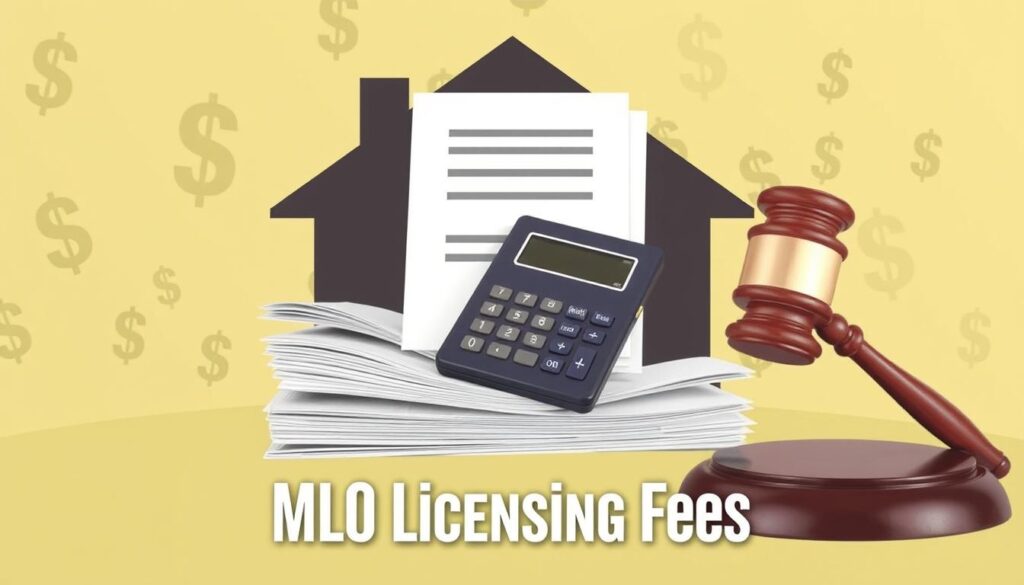
Conclusion
To get a mortgage loan originator license in Arizona, you need to follow NMLS rules and state laws. You must also keep up with mortgage compliance training. First, you create an NMLS account and finish pre-licensing classes. Then, you pass exams and meet financial and background checks.
The start is costly in time and money. But, it leads to many career opportunities in the mortgage world.
Those wanting to be mortgage loan originators should think about the costs and education needed. They also need to keep up with ongoing compliance. The mortgage field is stable and pays well, with chances for growth and networking.
Getting the Mortgage Loan Originator License shows you’re trustworthy and skilled. It helps you build trust with clients and employers. This license can open doors to more jobs, higher pay, and career advancement in finance.
Read This As Well:
Traceloans.com Mortgage Loans Review
FAQ
What is the process of obtaining a mortgage loan originator (MLO) license?
First, you need to create an NMLS account and get an ID number. Then, you must complete pre-licensing education. After that, pass the SAFE MLO national test. Finally, meet state-specific requirements. This guide focuses on Arizona’s process, which includes 20 hours of education, with 4 hours on Arizona-specific content.
How do I create an NMLS account and ID?
Start by creating an NMLS account and getting an ID number on the NMLS website.
What are the pre-licensing education requirements for Arizona?
Arizona needs 20 hours of education. This includes 16 hours of NMLS-approved content and 4 hours on Arizona laws. The SAFE Act also requires a minimum of 20 hours nationwide.
What topics are covered in the pre-licensing education?
You’ll learn about fair lending, ethics, fraud, and consumer protection. Topics also include federal laws, non-standard lending, and state-specific laws.
What is the SAFE MLO national test, and how do I schedule and pass it?
After education, schedule and pass the SAFE MLO national test. It has 120 questions, lasts 190 minutes, and costs $110.
What are the steps to apply for the Arizona MLO license?
Apply through the NMLS website. Complete background checks and pay fees. The Arizona Department of Financial Institutions (DFI) oversees the process. You must pass both the National and Arizona State components or the National Test Component with Uniform State Content.
What are the licensing fees in Arizona?
Fees include a $30 NMLS fee, $350 Arizona application fee, $15 credit report fee, and $36.25 FBI background check fee. Totaling $431.25. Registration fees vary, from $150 (January-March) to $37.50 (October-December).
What are the ongoing education requirements for mortgage loan originators in Arizona?
For renewal, you need 8 hours of continuing education annually. This includes federal regulations, ethics, non-traditional lending, and Arizona-specific education.





